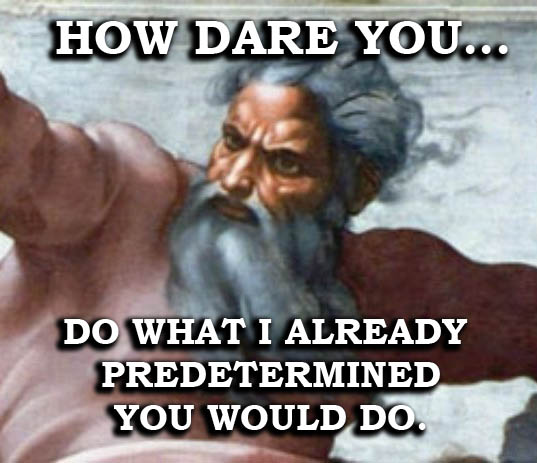Skala
I'm a Saint. Not because of me, but because of Him
lol I know, right.
Here is what we are disagreeing on. In the God's knowledge scenario, God knows all free actions, therefore no election is really necessary since God's election equals those that He knows will have faith.
Elect means to choose. You can't say "election isn't necessary" when the Bible says "He chose us". Apparently, election is very necessary, even biblical.
Therefore, the believer has the free will to choose God during their lifetime while the reprobate has the free will not to choose God during their lifetime. None can choose opposite to what God already knows simply because they don't know what the future holds so the action is a free will action by definition but is one that God already knows and the person does not. God retains His sovereignty and man retains his free will. Also, this explains why God is not the creator of sin by electing the reprobate to perdition since they chose to sin to death.
So you argue that God's knowledge is determinate. I agree with this
So, the logical conclusion is that there is no valid Calvinist versus Arminian argument since both have elements that are wrong and both have elements that are right but neither properly explains election in light of God's knowledge.
Your conclusion is a non sequitur, because the Calvinist agrees with you that God's knowledge is determinate. it's the arminian that has trouble explaining how everyone's fate is not fixed if God is omniscient.
The Calvinist has no elements that are wrong, and it does properly explain election. When someone asks a Calvinist to explain his understanding of election, he simply quotes verbatim passages like Romans 9, Eph 1:4-11, etc. The Calvinists' "explanation" of election is simply repeating what the bible says. The bible explains election, and the Calvinist simply believes it.
Last edited:
Upvote
0



